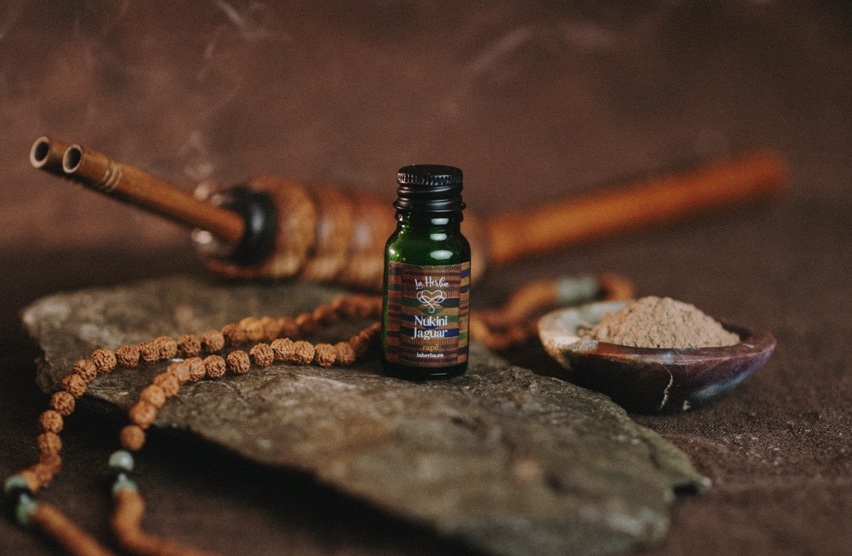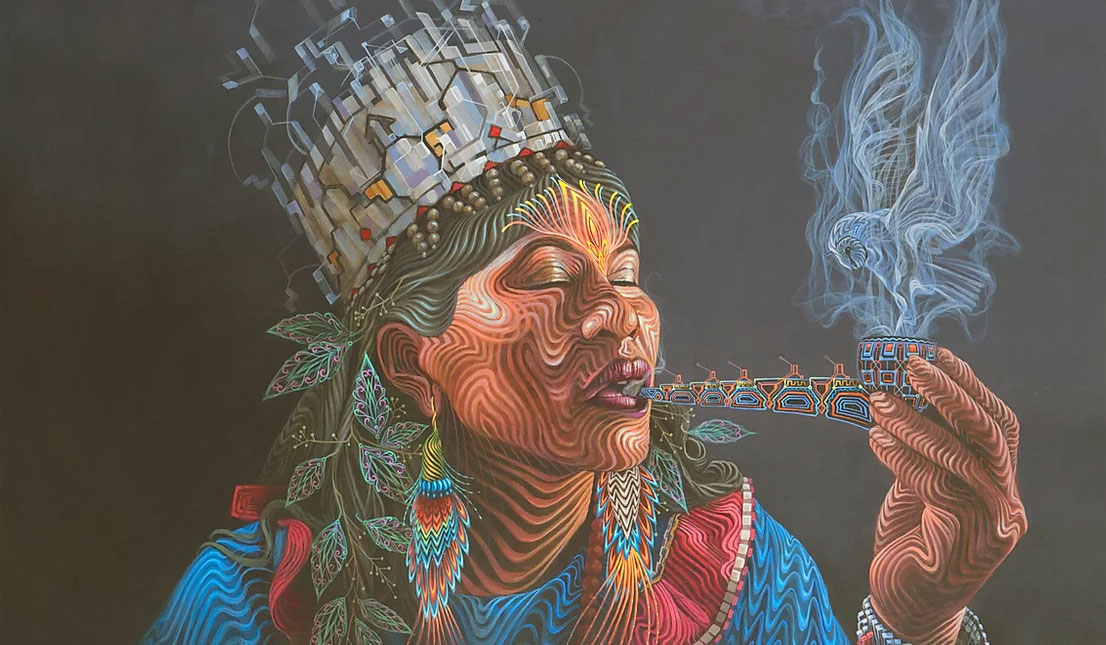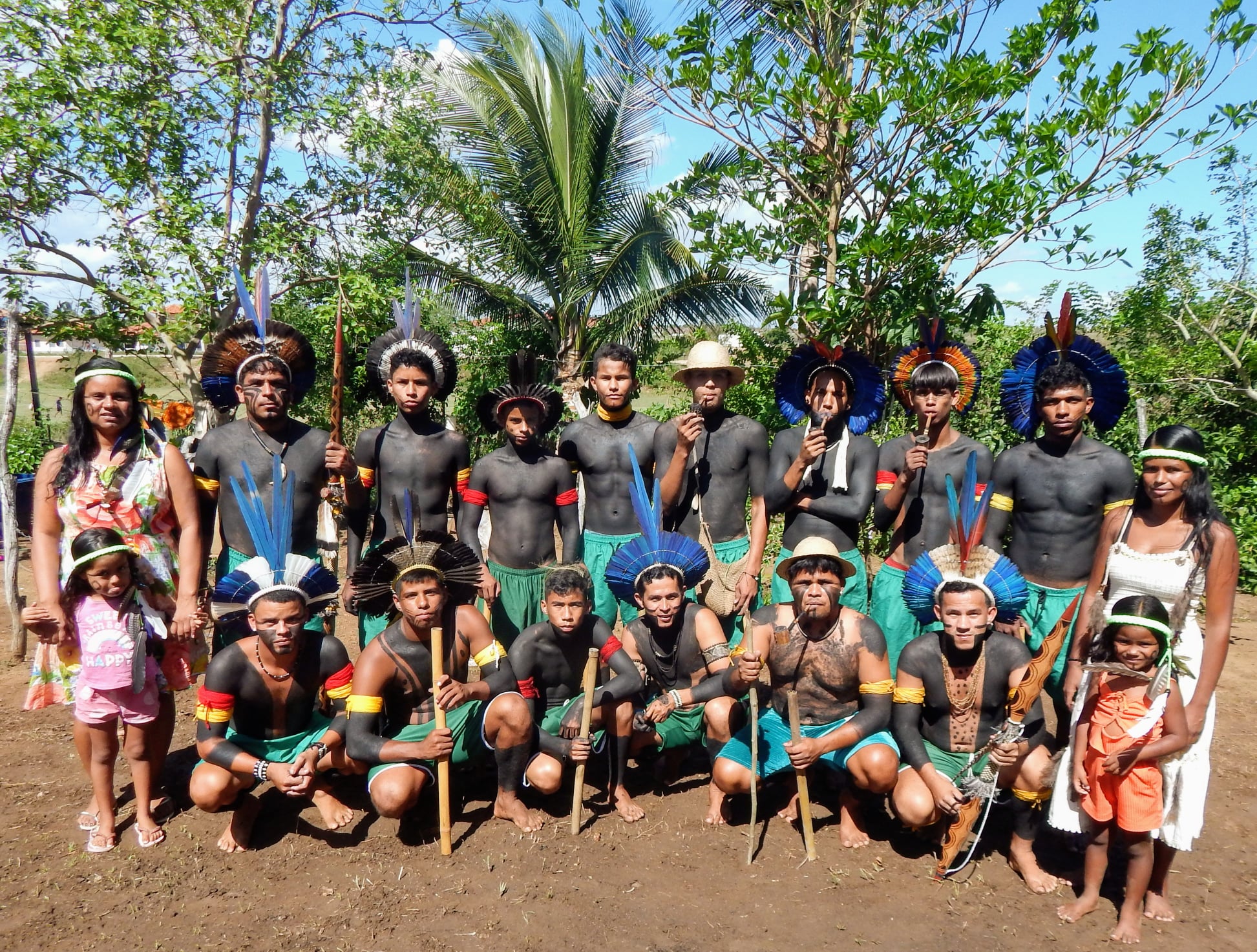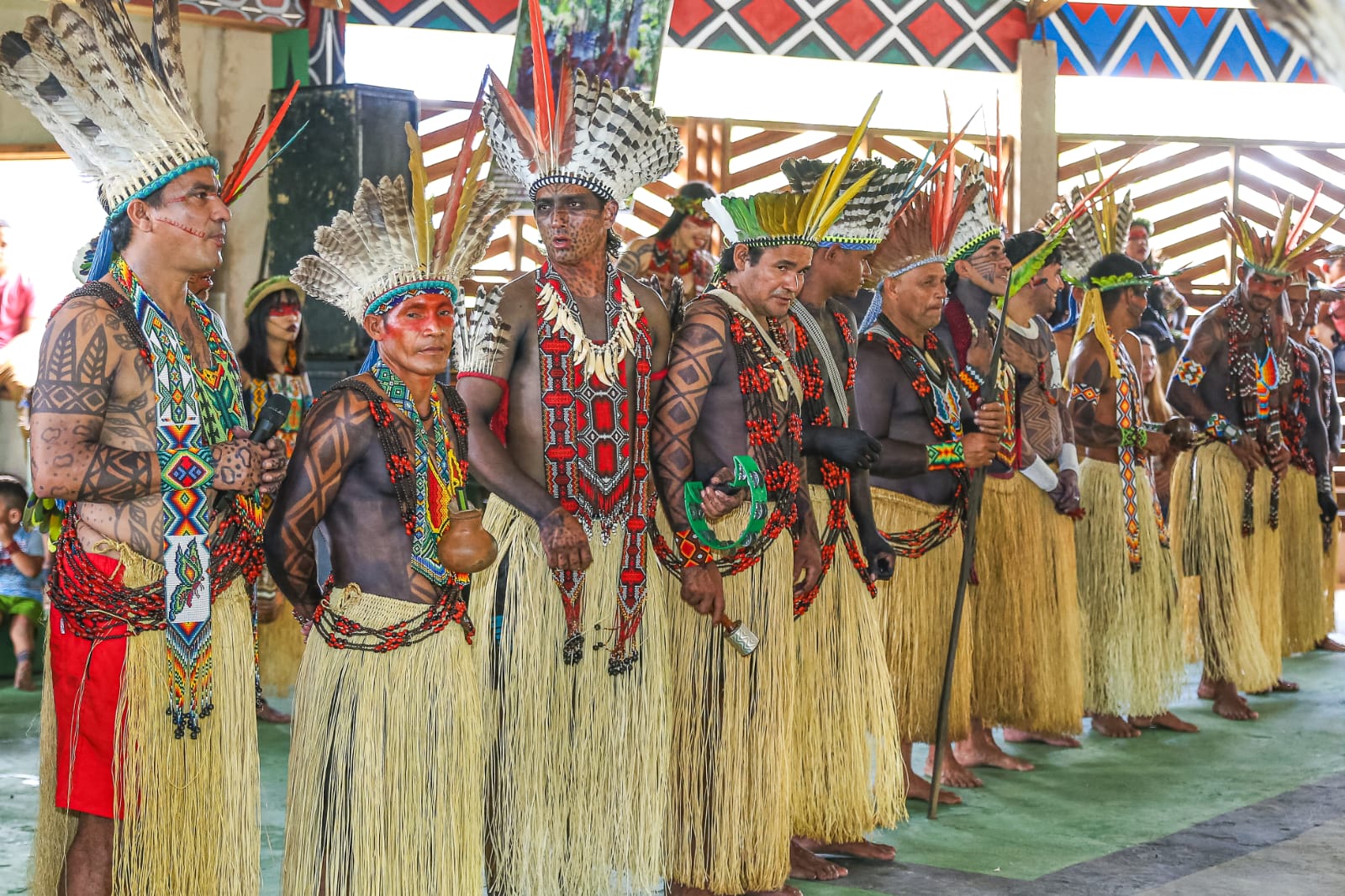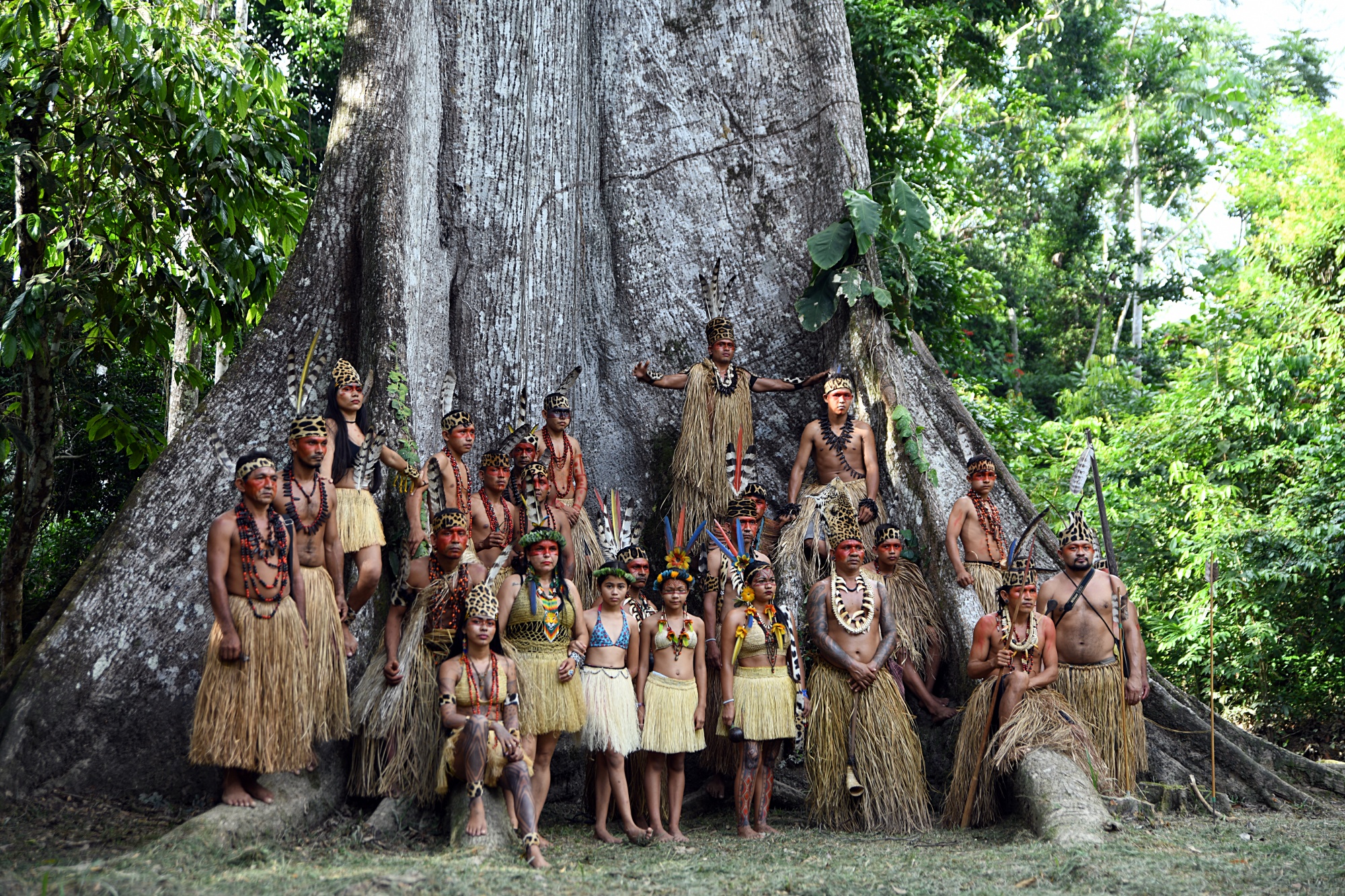
The Nukini tribe from Acré, Brazil
The Nukini tribe, often called the "People of the Jaguar," ranks among the most resilient indigenous groups inhabiting the Brazilian state of Acre, deep in the heart of the Amazon rainforest. Their culture is deeply rooted in a symbiosis with the surrounding nature, where every tree, every vine, and every animal carries a unique spiritual wisdom.
This tribe, who speak a language belonging to the Pano family, has maintained its identity and spiritual knowledge despite a brutal history. Let's dive into the world of the Nukini, their sacred medicines, and understand why their legacy remains vital for global spirituality today.
Origin and History: The Silent Survivors of the Amazon
The Nukini tribe lives in Acre, Brazil, and belongs to the Pano linguistic family. The tribe has more than 750 members, although other sources suggest a total count of over 900 members.
Members suffered heavy losses during the history of the rubber industry, when many tribal members were enslaved or massacred. A large part of their original culture, including their language, was lost or dispersed, and the entire ethnic group was nearly wiped out. However, the Nukini managed to survive, unite with other ethnic groups and tribes, and rebuild a strong socio-economic structure. This facilitates their close connection with the surrounding nature, even though the environment is currently in decline. Unlike the larger Amazonian tribes, the Nukini primarily assess members of other tribes based on their knowledge of plants and skills in gathering and blending herbs.
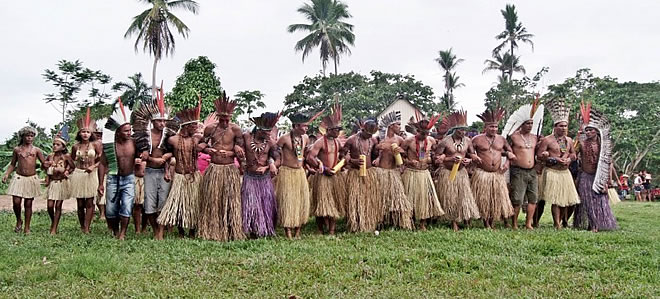
Geographical Location and Community
The Nukini tribe primarily lives in the western part of the Brazilian state of Acre, near the border with Peru. Their ancestral territory, Terra Indígena Nukini, stretches across the Môa and Juruá river basins and forms part of a large mosaic of protected areas known for their exceptionally high biodiversity.
The Nukini tribe mostly speaks their mother tongue, the Nukini language. Despite the fact that the language was considered endangered in the 20th century, community schools are striving to revitalize and preserve it. Portuguese is also quite commonly understood among the members, which is a legacy of history.
History and the Rubber Boom
The history of the Nukini tribe, like many other Pano tribes, is marked by the period of the rubber boom (late 19th and early 20th centuries). This period brought violent colonization, land expropriation, enslavement, and massive population losses due to disease and exploitation.
Despite this nearly devastating history, the Nukini maintained a strong sense of identity, cultural pride, and resilience. Their ability for adaptation and cultural continuity lies in their deep ancestral knowledge and spirituality.
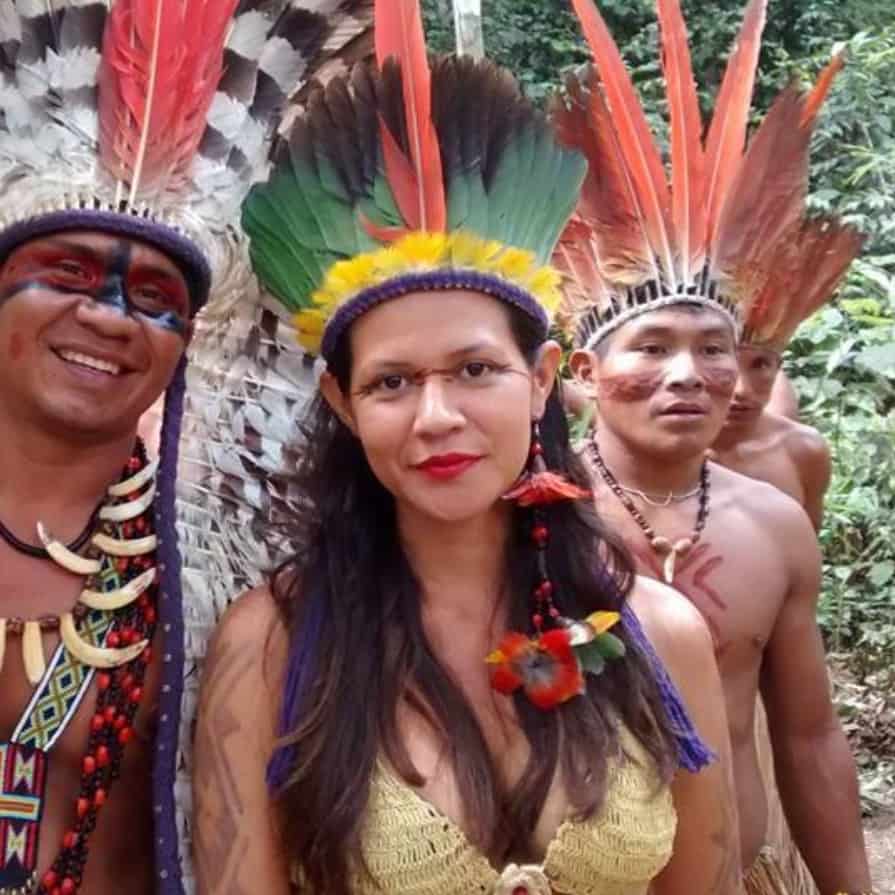
Spirituality and the Jaguar Archetype
Spirituality is a central pillar of Nukini culture, deeply intertwined with their relationship with the natural world. They believe in the interconnectedness of all living beings and the importance of maintaining harmony and balancewithin the environment.
The Pajés and Sacred Medicines
The spiritual practices of the tribe are led by shamans, known as Pajés, who serve as intermediaries between the human and spirit worlds. The Pajés possess profound knowledge of medicinal plants, rituals, and ceremonies, which they use to promote physical, emotional, and spiritual well-being.
Sacred plant medicines play a key role in their ceremonies:
-
Ayahuasca: A potent psychoactive brew used for communing with spirits, seeking guidance, and deep healing.
-
Sananga: Medicinal eye drops made from Amazonian plants, used to cleanse vision and enhance spiritual clarity.
-
Rapé: Fine powdered snuff that is central to the purification of the mind, body, and energetic center.
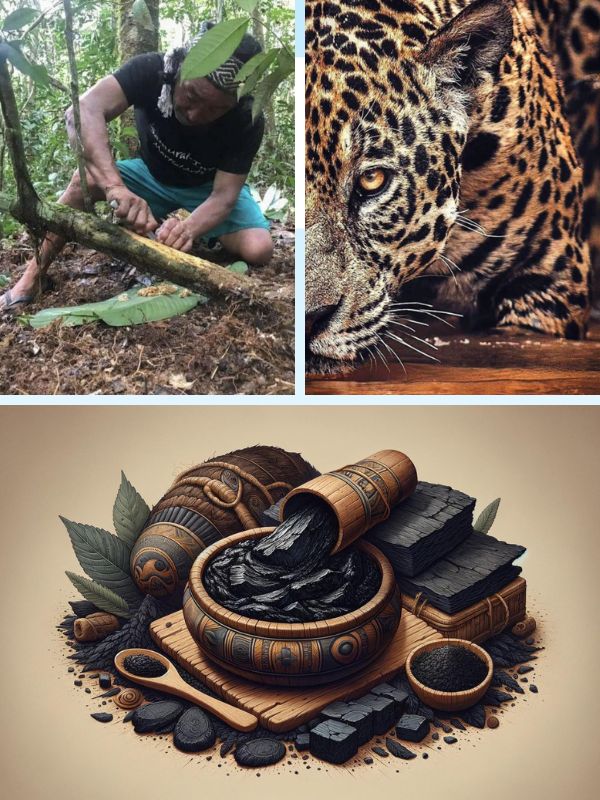
Totem of Power: The Jaguar
The Nukini are closely linked with the spirit of the Jaguar (Onça). The Jaguar is revered in Amazonian cosmology as a powerful totem that embodies:
-
Strength and Agility: Physical and spiritual dominance.
-
Vision and Silence: The Jaguar is a predator that acts with maximum precision, focus, and clear intention. Silent alertness precedes action.
-
Connection to Worlds: In some traditions, the jaguar is viewed as a being capable of moving between the physical world and the underworld (the realm of the ancestors).
The Mastery of Rapé: Nukini as Innovators
The Nukini are regarded as masters of Rapé, with their blends known for their strength, quality, and grounding effect. Their Rapé is the result of a long, ritual process in which shamans infuse the mixtures with prayers and reverent intention toward the plant spirits.
Characteristics of Nukini Rapé
The blends from this tribe are valued for:
-
High Potency and Deep Cleansing: The mixtures are robust and effective, ideal for energetic cleansing of blockages and negative thoughts.
-
Grounding Effect: Nukini Rapé induces a state of calm, grounding, and vigilant awareness.
-
Emotional and Physical Balance: The blends (such as Rapé Forca) are ideal for seeking balance on all levels—emotional, physical, and mental.
Specific Blends (Examples of Innovation):
The Nukini tribe is also known for its innovation and the incorporation of non-traditional plants to enrich their Rapé, for example:
-
Rapé Jaguar: (Strong masculine energy and focus) – A blend embodying the jaguar archetype, supporting precision and protection.
-
Rapé Eucalypto: (Freshness and clarity) – A blend using eucalyptus, prized for its powerful respiratory and cleansing effects, demonstrating the Nukini's ability to adapt and integrate new plants into their rituals.
-
Rapé Sansara: (Feminine power and healing) – A blend carrying the imprint of feminine wisdom and resilience, often associated with headache relief and clearing negative energies.
The Nukini Today: Preservation and Transmission
Today, the Nukini, like other Amazonian tribes, face ongoing challenges—from illegal deforestation to the disruption of their traditional territories.
The sale of their traditionally prepared Rapé and other ethnobotanical products, such as Sananga and Ayahuasca, allows the tribe to achieve:
-
Economic Sustainability: Supports the community and improves living conditions without having to abandon their land.
-
Cultural Preservation: Allows for the transmission and maintenance of the ancient knowledge held by the Pajés and artisans.
Involvement in the Fair Trade system ensures that wood, ash, and plants are harvested ethically and with respect, and that the profit returns directly to the community.
The Nukini are a living testament to the strength and depth of the Amazonian tradition, reminding us that the greatest power, vision, and harmony are found in the silent, grounded connection with Nature. Their Rapé is not just a tool for purification, but a bridge to this ancient, indestructible source of strength.
Mapacho / Rapé icaro for calming and grounding energies
In the Amazon tradition, when an apprentice follows the path of the curandero (“healer”), he follows diets that allow him to connect with the spirits of the plants. In this moment of deep communion...
Kariri-Xocó tribe
The Kariri-Xocó: A Proud People Holding Space for Spirit and Tradition
Nestled along the banks of the great São Francisco River in the Brazilian state of Alagoas, the Kariri-Xocó community is...
Tepí - blowers, applicator for Rapé
The Tepi is an applicator that is used when somebody wants to blow mediciny to another person, normally a shaman or the person conducting a ceremonial.
The people in the forest use it for cere...
The Puyanawa tribe
The Poianauas (Puyanawa) are an indigenous group that lives in the far west of the Brazilian state of Acre, more precisely in the Indigenous Land Poyanawa, located in the municipality of Mancio Lim...

